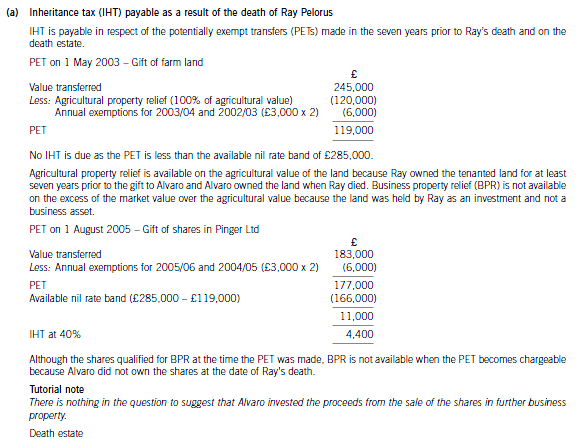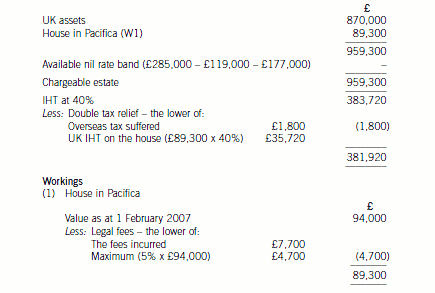2021年度ACCA考试:管理会计专业词汇汇总(3)
发布时间:2021-02-13
想知道ACCA考试管理会计专业词汇的相关知识点,接下来就和51题库考试学习网一起去了解下吧!
ACCA财经词汇汇编:Forward Rate
【English Terms】
Forward Rate
【中文翻译】
远期利率
【详情解释/例子】
一种货币、商品或其他资产在未来特定时间交付所牵涉的成本。
ACCA财经词汇汇编:Forward Price
【English Terms】
Forward Price
【中文翻译】
远期价格
【详情解释/例子】
令远期合约对交易双方都无价值的预定价格。
ACCA财经词汇汇编:Forward Market
【English Terms】
Forward Market
【中文翻译】
远期市场
【详情解释/例子】
指远期合约的场外交易。
ACCA财经词汇汇编:Forward Rate Agreement (FRA)
【English Terms】
Forward Rate Agreement (FRA)
【中文翻译】
远期利率协议
【详情解释/例子】
一种远期合约,列明在未来特定生效日开始支付或收取的利率。
ACCA财经词汇汇编:Forward Swap
【English Terms】
Forward Swap
【中文翻译】
远期掉期
【详情解释/例子】
为满足投资者特殊投资期要求,而结合两项期限不同掉期的掉期协议。
ACCA财经词汇汇编:Free Cash Flow
【English Terms】
Free Cash Flow
【中文翻译】
自由现金流
【详情解释/例子】
一家企业在支付持续商业活动及增长的开支后剩余的现金。
ACCA财经词汇汇编:Fundamental Analysis
【English Terms】
Fundamental Analysis
【中文翻译】
基本面分析
【详情解释/例子】
通过计算股票的内在价值评估其价值的方法。基本面分析员研究的范围从总体经济和行业环境以至公司本身的财务状况及管理。
ACCA财经词汇汇编:Fully Valued
【English Terms】
Fully Valued
【中文翻译】
已充分反映实值
【详情解释/例子】
股价能准确反映公司实力的股份。
ACCA财经词汇汇编:Free Cash Flow per Share
【English Terms】
Free Cash Flow per Share
【中文翻译】
每股自由现金流
【详情解释/例子】
评估公司财务灵活性的指标 。 计算方法为净利润 + 非现金开支 - 股息及资本开支,然后除以已发行股票总数。
ACCA财经词汇汇编:Free Cash Flow for the Firm (FCFF)
【English Terms】
Free Cash Flow for the Firm (FCFF)
【中文翻译】
企业自由现金流
【详情解释/例子】
一家企业的营运收入减开支、税项及周转资金和投资的变动额。
ACCA财经词汇汇编:Fund Manager
【English Terms】
Fund Manager
【中文翻译】
基金经理
【详情解释/例子】
负责投资共同基金旗下资产、执行其投资策略及处理日常投资组合交易的专业人员。
以上就是51题库考试学习网带给大家的全部内容,希望能够帮到大家!预祝大家在ACCA考试中取得满意的成绩,如果想要了解更多关于ACCA考试的资讯,敬请关注51题库考试学习网!
下面小编为大家准备了 ACCA考试 的相关考题,供大家学习参考。
22 Which of the following statements about limited liability companies’ accounting is/are correct?
1 A revaluation reserve arises when a non-current asset is sold at a profit.
2 The authorised share capital of a company is the maximum nominal value of shares and loan notes the company
may issue.
3 The notes to the financial statements must contain details of all adjusting events as defined in IAS10 Events after
the balance sheet date.
A All three statements
B 1 and 2 only
C 2 and 3 only
D None of the statements
(b) Calculate the amount of input tax that will be recovered by Vostok Ltd in respect of the new premises in the
year ending 31 March 2009 and explain, using illustrative calculations, how any additional recoverable input
tax will be calculated in future years. (5 marks)
(b) Recoverable input tax in respect of new premises
Vostok Ltd will recover £47,880 (£446,500 x 7/47 x 72%) in the year ending 31 March 2009.
The capital goods scheme will apply to the purchase of the building because it is to cost more than £250,000. Under the
scheme, the total amount of input tax recovered reflects the use of the building over the period of ownership, up to a maximum
of ten years, rather than merely the year of purchase.
Further input tax will be recovered in future years as the percentage of exempt supplies falls. (If the percentage of exempt
supplies were to rise, Vostok Ltd would have to repay input tax to HMRC.)
The additional recoverable input tax will be computed by reference to the percentage of taxable supplies in each year including
the year of sale. For example, if the percentage of taxable supplies in a particular subsequent year were to be 80%, the
additional recoverable input tax would be computed as follows.
£446,500 x 7/47 x 1/10 x (80% – 72%) = £532.
Further input tax will be recovered in the year of sale as if Vostok Ltd’s supplies in the remaining years of the ten-year period
are fully vatable. For example, if the building is sold in year seven, the additional recoverable amount for the remaining three
years will be calculated as follows.
£446,500 x 7/47 x 1/10 x (100% – 72%) x 3 = £5,586.
(c) Discuss the ways in which budgets and the budgeting process can be used to motivate managers to
endeavour to meet the objectives of the company. Your answer should refer to:
(i) setting targets for financial performance;
(ii) participation in the budget-setting process. (12 marks)
(c) Examiner’s Note:
The topic of managerial motivation and budgeting has been a subject of discussion for a number of years. There are links
here to the topics of performance measurement and responsibility accounting. Discussion should be focused on the area of
budgets and the budgeting process, as specified in the question.
Setting targets for financial performance
It has been reasonably established that managers respond better in motivation and performance terms to a clearly defined,
quantitative target than to the absence of such targets. However, budget targets must be accepted by the responsible
managers if they are to have any motivational effect. Acceptance of budget targets will depend on several factors, including
the personality of an individual manager and the quality of communication in the budgeting process.
The level of difficulty of the budget target will also influence the level of motivation and performance. Budget targets that are
seen as average or above average will increase motivation and performance up to the point where such targets are seen as
impossible to achieve. Beyond this point, personal desire to achieve a particular level of performance falls off sharply. Careful
thought must therefore go into establishing budget targets, since the best results in motivation and performance terms will
arise from the most difficult goals that individual managers are prepared to accept4.
While budget targets that are seen as too difficult will fail to motivate managers to improve their performance, the same is
true of budget targets that are seen as being too easy. When budget targets are easy, managers are likely to outperform. the
budget but will fail to reach the level of performance that might be expected in the absence of a budget.
One consequence of the need for demanding or difficult budget targets is the frequent reporting of adverse variances. It is
important that these are not used to lay blame in the budgetary control process, since they have a motivational (or planning)
origin rather than an operational origin. Managerial reward systems may need to reward almost achieving, rather than
achieving, budget targets if managers are to be encouraged by receiving financial incentives.
Participation in the budget-setting process
A ‘top-down’ approach to budget setting leads to budgets that are imposed on managers. Where managers within an
organisation are believed to behave in a way that is consistent with McGregor’s Theory X perspective, imposed budgets may
improve performance, since accepting the budget is consistent with reduced responsibility and avoiding work.
It is also possible that acceptance of imposed budgets by managers who are responsible for their implementation and
achievement is diminished because they feel they have not been able to influence budget targets. Such a view is consistent
with McGregor’s Theory Y perspective, which holds that managers naturally seek responsibility and do not need to be tightly
controlled. According to this view, managers respond well to participation in the budget-setting process, since being able to
influence the budget targets for which they will be responsible encourages their acceptance. A participative approach to
budget-setting is also referred to as a ‘bottom-up’ approach.
In practice, many organisations adopt a budget-setting process that contains elements of both approaches, with senior
management providing strategic leadership of the budget-setting process and other management tiers providing input in terms
of identifying what is practical and offering detailed knowledge of their area of the organisation.
1 Alvaro Pelorus is 47 years old and married to Maria. The couple have two children, Vito and Sophie, aged 22 and
19 years respectively. Alvaro and Maria have lived in the country of Koruba since 1982. On 1 July 2005 the family
moved to the UK to be near Alvaro’s father, Ray, who was very ill. Alvaro and Maria are UK resident, but not ordinarily
resident in the tax years 2005/06 and 2006/07. They are both domiciled in the country of Koruba.
On 1 February 2007 Ray Pelorus died. He was UK domiciled, having lived in the UK for the whole of his life. For the
purposes of inheritance tax, his death estate consisted of UK assets, valued at £870,000 after deduction of all
available reliefs, and a house in the country of Pacifica valued at £94,000. The executors of Ray’s estate have paid
Pacifican inheritance tax of £1,800 and legal fees of £7,700 in respect of the sale of the Pacifican house. Ray left
the whole of his estate to Alvaro.
Ray had made two gifts during his lifetime:
(i) 1 May 2003: He gave Alvaro 95 acres of farm land situated in the UK. The market value of the land was
£245,000, although its agricultural value was only £120,000. Ray had acquired the land on
1 January 1996 and granted an agricultural tenancy on that date. Alvaro continues to own the
land as at today’s date and it is still subject to the agricultural tenancy.
(ii) 1 August 2005: He gave Alvaro 6,000 shares valued at £183,000 in Pinger Ltd, a UK resident trading
company. Gift relief was claimed in respect of this gift. Ray had acquired 14,000 shares in
Pinger Ltd on 1 April 1997 for £54,600.
You may assume that Alvaro is a higher rate taxpayer for the tax years 2005/06 and 2006/07. In 2006/07 he made
the following disposals of assets:
(i) On 1 July 2006 he sold the 6,000 shares in Pinger Ltd for £228,000.
(ii) On 1 September 2006 he sold 2,350 shares in Lapis Inc, a company resident in Koruba, for £8,270. Alvaro
had purchased 5,500 shares in the company on 1 September 2002 for £25,950.
(iii) On 1 December 2006 he transferred shares with a market value of £74,000 in Quad plc, a UK quoted company,
to a UK resident discretionary trust for the benefit of Vito and Sophie. Alvaro had purchased these shares on
1 January 2006 for £59,500.
Alvaro has not made any other transfers of value for the purposes of UK inheritance tax. He owns the family house
in the UK as well as shares in UK and Koruban companies and commercial rental property in the country of Koruba.
Maria has not made any transfers of value for the purposes of UK inheritance tax. Her only significant asset is the
family home in the country of Koruba.
Alvaro and his family expect to return to their home in the country of Koruba in October 2007 once Ray’s affairs have
been settled. There is no double taxation agreement between the UK and Koruba.
Required:
(a) Calculate the inheritance tax (IHT) payable as a result of the death of Ray Pelorus. Explain the availability
or otherwise of agricultural property relief and business property relief on the two lifetime gifts made by Ray.
(8 marks)


声明:本文内容由互联网用户自发贡献自行上传,本网站不拥有所有权,未作人工编辑处理,也不承担相关法律责任。如果您发现有涉嫌版权的内容,欢迎发送邮件至:contact@51tk.com 进行举报,并提供相关证据,工作人员会在5个工作日内联系你,一经查实,本站将立刻删除涉嫌侵权内容。
- 2020-10-12
- 2020-09-05
- 2019-07-03
- 2019-03-17
- 2020-10-12
- 2021-02-14
- 2020-10-12
- 2020-09-05
- 2020-10-12
- 2021-02-13
- 2020-10-12
- 2020-10-12
- 2020-10-12
- 2021-02-14
- 2020-09-05
- 2021-02-14
- 2019-07-03
- 2020-09-05
- 2021-02-14
- 2020-10-12
- 2020-09-05
- 2020-10-12
- 2021-02-13
- 2021-02-14
- 2021-02-13
- 2021-02-13
- 2019-03-17
- 2021-02-13
- 2020-09-05
- 2021-02-14